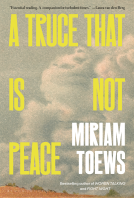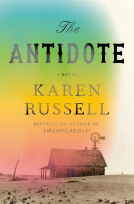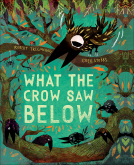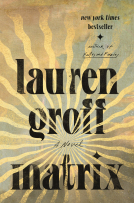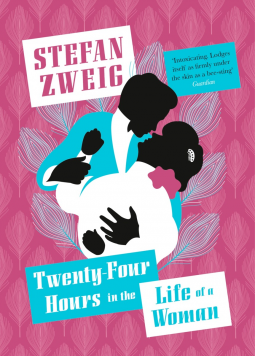
Twenty-Four Hours in the Life of a Woman
by Stefan Zweig
This title was previously available on NetGalley and is now archived.
Send NetGalley books directly to your Kindle or Kindle app
1
To read on a Kindle or Kindle app, please add kindle@netgalley.com as an approved email address to receive files in your Amazon account. Click here for step-by-step instructions.
2
Also find your Kindle email address within your Amazon account, and enter it here.
Pub Date Sep 06 2016 | Archive Date Jun 16 2016
Description
The less I felt in myself, the more strongly I was drawn to those places where the whirligig of life spins most rapidly.
So begins an extraordinary day in the life of Mrs C—recently bereaved and searching for excitement and meaning. Drawn to the bright lights of a casino, and the passion of a desperate stranger, she discovers a purpose once again but at what cost?
In this vivid and moving tale of a compassionate woman, and her defining experience, Zweig explores the power of intense love, overwhelming loneliness and regret that can last for a lifetime.
Advance Praise
'At once the literary heir of Chekhov, Conrad, and Maupassant' Harvard Review
'The Updike of his day... Zweig is a lucid writer, and Bell renders his prose flawlessly' New York Observer
'Zweig is the most adult of writers; civilised, urbane, but never jaded or cynical; a realist who nonetheless believed in the possibility--the necessity--of empathy' Independent
Available Editions
| EDITION | Other Format |
| ISBN | 9781782272151 |
| PRICE | $6.99 (USD) |
Featured Reviews
 Robin Y, Reviewer
Robin Y, Reviewer
Originally written in 1927 and translated from original German, this novella is my first reading of Austrian born Zweig. I was delighted to be drawn into the story immediately, and intrigued all along the way. The writing is charming and captivating. It's a story about passion, impulsivity, loneliness, convention and guilt. An elderly woman tells the narrator the story of a 24 hour span in her life that took place many years prior, which has haunted and shaped the rest of her life. While the societal 'rules' are quite different now than they were in 1927 (which makes her actions much less shocking when looked through a modern lens), the emotions are very relatable. Many people still feel trapped by societal expectations and live their lives accordingly - these 24 hours represent a complete escape from those prison bars. I appreciated the lack of judgment toward the woman in the narrator's/author's voice. Well worth the hour or so it takes to read this gem!
 Educator 211653
Educator 211653
Thank you Net Galley. One of the best novellas I have read in recent times.
The writing (and translation) is excellent and very contemporary despite its age. Highly recommended.
 Ellen A, Educator
Ellen A, Educator
I'll admit up front that I love Stefan Zweig. Twenty-Four Hours in the Life of a Woman is an excellent example of his work and a good place to start if you are not familiar with the work of this important 20th century author.
The novella is told from the perspective of a visitor at a resort who watches and tells us about the relationship between a man and a woman also at the resort. The writing is perceptive with unexpected twists and a view into relationships that is interesting. Altogether, a wonderful read.
My thanks to NetGalley and Pushkin Press for the chance to read this wonderful story in exchange for an honest review.
 Ilse A, Reviewer
Ilse A, Reviewer
The heart has its reasons which reason knows not
- Blaise Pascal -
Le coeur a ses raisons que la raison ne connaît point. Petty prejudices, fear of the unknown and the painfulness of having to face one’s own shortcomings can swirl one into obnoxious judgmentalness. We, humble and ignorant wizard-apprentices in a life we cannot re-create, might never acquire adequate depth of insight and wisdom to understand another one’s – or even our own - heart, one’s innermost feelings and inner storms. Austrian writer Stefan Zweig (1881-1942) did, as this gorgeous novella abundantly and proficiently demonstrates.
In a small pension at the French Riviera, an apparently respectable, married woman overnight abandons her husband and offspring to elope with a perfect stranger. Abhorred, a few other couples residing in the pension discuss her conduct vehemently. Why did she behave like that? Was it a planned act of conspiracy, or did it equate a whimsical coup de foudre? What kind of woman could be that wicked? (I recall the horrible Sylvia Tietjens in Ford Madox Ford’s Parade's End). Their commensal, the narrator, bored and irritated by the bigot display of moral purity and bourgeois arrogance, challenges the couples’ haughty thoughts and comes to the defence of the ‘fallen’ woman. Taking the noble stance that ‘he’d rather understand others than condemn them’, he draws the attention of another guest, a distinguished, old English lady, Mrs. C. Pushed by the scandal, evoking strong reminiscences, Mrs. C., after 20 years of shame and silence, feels the need to finally pour her heart out on what has been the most eventful and passionate 24 hours in her life. That is where a remarkable tale within the tale starts, ending up in a secular confession - a woman talking about the passion.
Her story catapults us back to the deliciously vicious mundane setting of fin-de-siècle Monte Carlo, where Mrs. C, world-weary, seeks thrill in the casino, to feel that she is still alive after her husband’s untimely death:
In my second year of mourning, that is to say my forty-second year, I had come to Monte Carlo at the end of March in my unacknowledged flight from time that had become worthless and was more than I could deal with. To be honest, I came there out of tedium, out of the painful emptiness of the heart that wells up like nausea, and at least tries to nourish itself on small external stimulations. The less I felt in myself, the more strongly I was drawn to those places where the whirligig of life spins more rapidly. If you are experiencing nothing yourself, the passionate restlessness of others stimulates the nervous system like music or drama.
Within a space of twenty-four hours she will learn life-reconfiguring lessons on human nature and herself, inspired by the encounter with a troubled young Polish diplomat in the casino: ‘I had come to know immeasurably more about reality than in my preceding forty respectable years of life.’ The word ‘impossible’ suddenly has lost its meaning to her. Despair, obsession, passion, crisis will become her part.
Zweig plays masterfully with the conventions of the genre, depicting the raffish aristocrats and the dubious coquettes, lacing the most elegant sentences brilliantly together. The most impressive however is his amazingly intricate psychological dissection of the heart and soul of the aging woman regarding her own life as utterly pointless, aiming to rescue another lost soul. I summoned everything in me to save him by all the means at my command. A human being may know such an hour perhaps only once in his life, and out of millions, again, perhaps only one will know it- but for that terrible chance I myself would never have guessed how ardently, desperately, with what boundless greed a man given up for lost will still suck at every red drop of life. Kept safe for 20 years from all the demonic forces of existence, I would never have understood how magnificently, how fantastically Nature can merge hot and cold, life and death, delight and despair together in a few brief moments. And that night was so full of conflict and of talk, of passion and anger and hatred, with tears of entreaty and intoxication, that it seemed to me to last a thousand years, and we two human beings who fell entwined into its chasm, one of us in a frenzy, the other unsuspecting, emerged from that mortal tumult changed, completely transformed, senses and emotions transmuted.
Some parallels can be drawn with one of Zweig’s literary heroes, both in the psychological scrutinizing of the characters and the intense style: Fyodor Dostoevsky. Zweig’s story both echoes White Nights, and, even more The Gambler. (Zweig published a study about Dostoevsky (and Balzac and Dickens) in 1920, Three Masters: Balzac, Dickens, Dostoeffsky).
In 1920, in his Reminiscences of Leo Nikolaevich Tolstoy, Maxim Gorky, Zweig’s highly admired friend, wrote on Tolstoy at cards: ‘His hands become nervous when he picks up the cards, exactly as if he were holding live birds instead of inanimate pieces of cardboard.’ By letting Mrs. C.’s passion develop from chiromantic observations, comparing hands to animals, one could say Zweig probably paid homage to his dear friend. In turn, Gorky Maxim Gorky wrote about Zweig’s novella he had never read anything more profound. I saw two hands such as I had never seen before, left and right clutching each other like doggedly determined animals, bracing and extending together and against one another with such heightened tension that the fingers joints cracked with a dry sound like a nut cracking open. They were hands of rare beauty, unusually long, unusually slender, yet taut and muscular – very white, the nails pale at their tips, gently curving and the colour of mother-of-pearl.
As Zweig admired Freud, something could be said about the erotically hued mothering of the widow over a man the same age as her son. Thinking of the flowering phenomenon of wealthy cougar women in our times - the difference in age as such might be less unfamiliar and scandalous than it was back in 1926, which by no means diminishes the power of the story at present.
Intrigued by Mitteleuropa, its history, literature and art, its intellectual life in the coffee houses (Prague, Budapest, Vienna) and by his fabulous range of interesting friends , I hope to get to Zweig’s famous memoir, The World of Yesterday, soon.
I read the novella in a Dutch translation, and would like to thank NetGalley and the publisher Pushkin Press for providing me with a copy of the English translation (by Anthea Bell), which allowed me to insert some quotes in English.
It is not for me to judge another man's life. I must judge, I must choose, I must spurn, purely for myself. For myself, alone.
― Hermann Hesse, Siddhartha
 John L, Reviewer
John L, Reviewer
In the inter-War years a small group of people at a posh European hotel see a woman they know bizarrely dump her family for a handsome man she's only just met, which brings them to debate the issue of her morals – until our narrator hears a confession of a different, but equally brief, example of impetuosity. The translation gets the style of this period piece perfectly, and the novella form is well met by the two combined storylines. More importantly, it's entertaining – the tale the woman has to tell contains quite a lot that's predictable, but it's all rich and engaging, and what we get is a very vivid little book. A great calling card for the author's output – four and a half stars.
First published in German in 1927; published in translation by Pushkin Press on September 6, 2016
A woman who takes up with an “elegant and handsome” young Frenchman and leaves her “stout, provincial husband” during a family vacation at the beach becomes the focal point of a strident argument among other hotel guests. Most guests at the narrator’s table assume that the woman had been having an affair and had conspired with the Frenchman to meet, as if by chance, for the purpose of running away together. They refuse to believe that a woman would abandon her husband and children on a whim. The narrator suggests that an unhappy woman might do just that in a moment of passion. The outraged discussion that follows is only diffused by the gentling remarks of an elderly, upper-class woman from England.
The conversation sparks the elderly woman to tell the narrator her own story. It is the story of a transformative encounter with a despairing stranger when the woman was in her 40s, years after her husband’s death. The stranger suffers from a compulsion that threatens to be his undoing. As she endeavors to save the man from himself, the woman is overwhelmed by a compulsion of her own.
Stefan Zweig plumbs the depths of the woman’s mind, dissecting it for the reader’s inspection. Her story is a confession, a remembrance of pain, an unburdening of shame, a reminder of how easily uncontrolled passion becomes uncontrollable pain. It is also the story of how the memory of a single day can become so deeply rooted that living with it for decades changes the person who bears it. The story invites the reader to ask about the value of passionate love -- whether it is worth the risk of losing everything we have to embrace something we are missing. The novella covers vast ground in fewer than a hundred pages as it invites the reader to feel and understand all that lies within the woman’s tortured soul.
The translation from German is by Anthea Bell. I haven’t read this is German so all I can say about the translation is that the prose is both fluid and strong.
RECOMMENDED
Stefan Zweig’s novella, Twenty Four Hours in the Life of a Woman, opens with guests at a French Riviera resort gossiping and “obsessing” over an incident that took place at the Grand Palace Hotel. A new guest, a handsome, charming young Frenchman man, arrived one day a little after noon and spent his time in a whirl of activity. The young man left abruptly that same evening, claiming that he’d “been suddenly called away.” Imagine the shock, when the guests learn late that night that a married woman, Madame Henriette, the wife of “a stout, thick-set manufacturer from Lyon,” has left her husband and two children to run off with the young Frenchman she just met. Tongues start wagging with the delicious gossip which is fed by a dramatic scene from the husband, and the gossip leans to earnest discussion about whether or not the married woman, a “minor Madame Bovary,” is crazy to leave her husband and family behind or whether her actions can be understood.
You will understand that such an event, striking like lightning before our very eyes and our perceptions, was likely to cause considerable turmoil in persons usually accustomed to an easygoing existence and carefree pastimes. But while this extraordinary incident was certainly the point of departure for the discussion that broke out so vehemently at our table, almost bringing us to blows, in essence the dispute was more fundamental, an angry conflict between two warring concepts of life.
The debate between the guests takes a very specific form which focuses on morality:
But what aroused so much indignation in all present was the circumstance that neither the manufacturer nor his daughters, not even Madame Henriette herself, had ever set eyes on this Lovelace before, and consequently their evening conversation for a couple of hours on the terrace, and the one-hour session in the garden over black coffee, seemed to have sufficed to make a woman about thirty-three years old and of blameless reputation abandon her husband and two children overnight, following a young dandy previously unknown to her without a second thought.
Some of the guests, who struggle to accept that Madame Henriette ran off with a man she just met, believe that there was a “clandestine affair” conducted long before the assignation at the hotel, and the dominant opinion is that “it was out of the question for a decent woman who had known a man a mere couple of hours to run off just like that when he first whistled her up.” The narrator, however, perhaps a romantic, takes the position that it was “probable in a woman who at heart had perhaps been ready to take some decisive action through all the years of a tedious, disappointing marriage.”
Our narrator, defending Madame Henriette, who he believes was “delivered up to mysterious powers beyond her own will and judgement,” finds himself in the minority opinion while the other married couples “denied the existence of the coup de foudre with positively scornful indignation, condemning it as folly and tasteless romantic fantasy.” An elderly widow, an Englishwoman, Mrs C, who has an “eccentric obsession” with the behaviour of the now-absent Madame Henriette, seems fascinated by the narrator’s moral stance. As the narrator’s holiday comes to an end, Mrs C tells her own story of twenty-four hours of madness….
This superb novella argues that married women, especially of a certain privileged class, are cocooned from life’s passions and ugly realities, and are, therefore, vulnerable to love affairs. Are they kept like little pets in gilded cages? The story of Madame Henriette and Mrs C echo all stories of other great fictional heroines: Anna Karenina leaps to mind–although of course, Zweig’s story doesn’t follow the aftermath of Madame Henriette’s decision. While Twenty-Four Hours in the Life of a Woman is concerned solely with the impulsive decisions of two women, nonetheless, there’s an arc to the story that continues beyond the first page. Anna Karenina, one of literature’s great tragic heroines, threw aside her tedious marriage for love, and we all know how that story ended. Madame Henriette’s fate will most probably be ignominious. Zweig allows us to imagine the consequences of her rashness, but he tells us, instead, the story of Mrs C’s extraordinary behavior.
Twenty-Four Hours in the Life of a Woman is a beautifully constructed, almost perfect tale of two women who went off the rails. There’s a 19th century feel to this story, and the narrator tells us almost immediately that the events he describes took place “ten years before the war.” So it’s a tale told in retrospect by someone who can’t forget either Madame Henriette or the confidences of Mrs C, a woman haunted by her actions decades after they took place.
Review copy
 Shoshi I, Reviewer
Shoshi I, Reviewer
Back in February, I read Pushkin Press's beautiful new edition of 'The Collected Novellas of Stefan Zweig' and immediately became a Zweig groupie. The past year has only increased my enjoyment of his work; in recent months there have been times when I really felt the need for passionate and melodramatic emotional responses to the 20th century. I'm not being flippant here, Zweig is becoming one of my escapism authors of choice because I completely believe in his characters and their inner turmoil but I also love pretending I'm one of those monied Europeans who suffer said turmoil while staying at luxury holiday resorts.
'Twenty-Four Hours in the Life of a Woman' delivers everything 'The Collected Novellas' had taught me to expect. The book is a story within a story, told to a single man (check) by an apparently very controlled married woman (check) after a 'heated discussion' between the 'thoroughly bourgeois company' at a hotel on the Riviera (Bingo!)
The heated discussion is about the fact that another hotel guest has just run away with a man she barely knows. There are morals, personal and public, to consider and feelings run high. This is all just preparation though, a warm-up round if you will, because the heart of the story is one told privately by the very controlled woman who has her own reasons for feeling strongly about the issue.
Bingo aside, one reason why Zweig's novellas are so great is that they contain substance as well as a consistently effective style and structure. While the bourgeois gossips are obsessed with appearances and one half of the story is consumed with passionate love, the other is about a frighteningly dark addiction. The first indication comes with the introduction of a man capable of changing a woman's life; before seeing his face, we view his soul through his hands:
'Two hands such as I had never seen before, left and right clutching each other like doggedly determined animals, bracing and extending together and against each other with such heightened tension that the fingers' joints cracked with a dry sound like a nut cracking open. They were hands of rare beauty, unusually long, unusually slender yet taut and muscular - very white, the nails pale at their tips, gently curving and the colour of mother of pearl. I kept watching them all evening, indeed I kept marvelling at those extraordinary, those positively unique hands - but what surprised and alarmed me so much at first was the passion in them, their crazily impassioned expressiveness, the convulsive way they wrestled with and supported each other. I knew at once that I was seeing a human being overflowing with emotion, forcing his passion into his fingertips lest it tear him apart.'
I don't want to give away the ultimate obsession in the novel, only that it is as convincing as the language is overblown. I recommend '24 hours' to anyone looking for a new Zweig hit - or as a brilliantly by-the-numbers introduction of what he does best to anyone who wants a way in.


